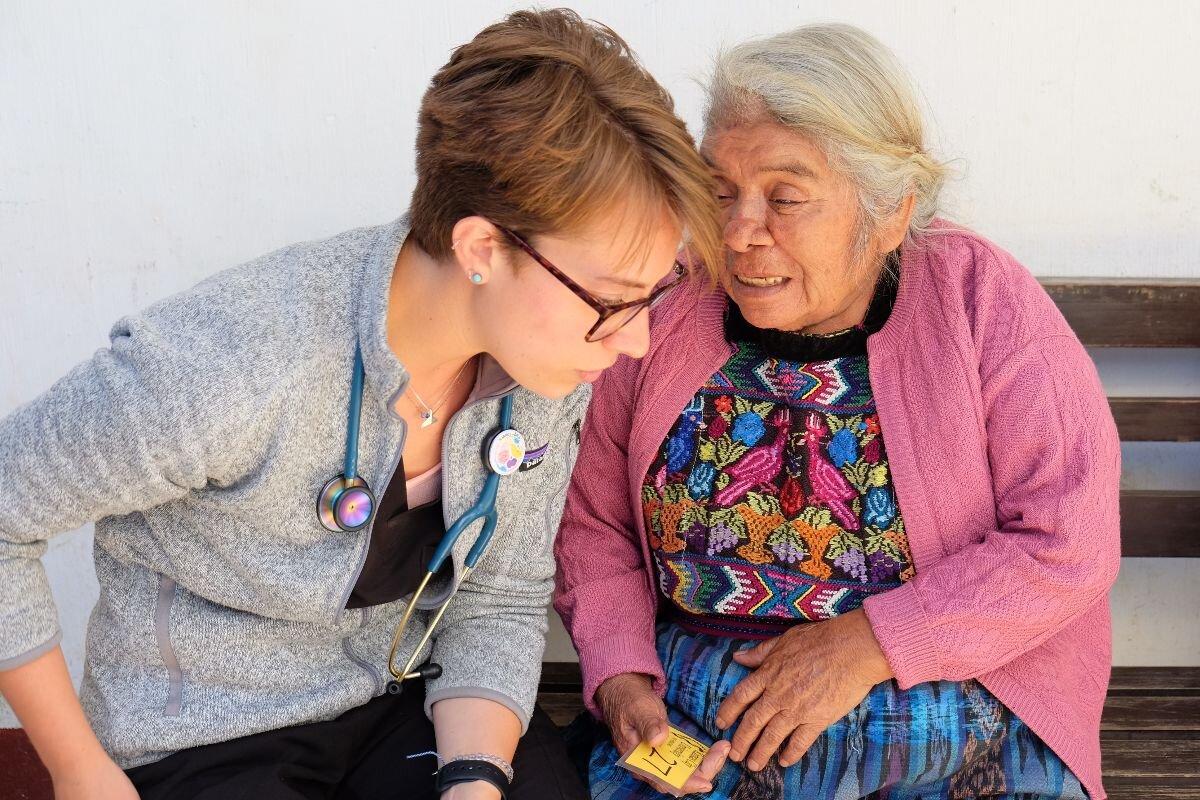October 2020
The average human life lasts 650,000 hours. How will you spend yours?
A few weeks before the world changed, I traveled with a team of Kansas City University doctors and students who ran free clinics in rural Guatemala.
Yes, America, We Will Survive COVID-19
Recently I wrote a piece for The Atlantic on resilience. Back in the spring, as I obsessively read about the pandemic, I grew weary of the many articles proclaiming that coronavirus will change us “forever.” First off, I’m not a theoretical physicist, but forever is a long time. The Earth won’t last forever. The universe won’t last forever. Even cockroaches and Twinkies won’t last forever. And the idea that humanity will live hug-free, homebound existences for all eternity seems kind of, well, insulting. Let’s give ourselves some credit: We humans have overcome calamities such as war, plague, famine, floods, natural disasters, droughts, and The Masked Singer. We may be greedy, violent, and shortsighted, but we’re resilient little creatures, too.
A desire for growth, not the lingering effects of fear, will ultimately fuel our national and personal recovery. And by forcing us to slow down, and to confront sickness, death, and economic pain, the pandemic has done something extraordinary. For many people, COVID-19 has not only inflicted suffering, but inspired personal reflection, spurring us to re-evaluate our priorities, desires, and goals — and to reconsider our phone-obsessed, missing-out-on-what-matters existences.
“I don’t want to be concerned about trivial things anymore,” Malika Fair, MD, a widower, new mother, and emergency room physician told me for a story on health-care workers and pandemic-related stress. Or as a friend of mine recently said, “I’ve realized you can’t just wait for things to happen, because you don’t know if they ever will.”
Want to become more resilient? Check out the following:
“Positive psychology is not about denying difficult emotions. It’s about opening to what is happening here and now, and cultivating and savoring the good in your life,” says Ron Siegel, PsyD, assistant professor of psychology at Harvard Medical School, in a Harvard Health blog about staying positive.
The Greater Good Science Center at the University of California in Berkeley recently shared “Seven Ways to Cope with Uncertainty.” How much does uncertainty affect us? Job uncertainty typically impacts people's health more than actually losing a job, research shows.
In my Atlantic piece, I mentioned post-traumatic growth, which is when we thrive after a deeply negative experience. The Washington Post recently covered the concept and The Christian Science Monitor focused on PTG and how residents of Paradise, California reprioritized their lives following the horrific fire of 2017.
We humans are survivors. Stay safe, stay positive, be kind, and wear a mask.
—Ken Budd
See The World
Porto, Portugal. E.U. countries are still not allowing U.S. citizens to enter.
Christopher Elliott of The Washington Post addresses a question we’re all wondering: When will it be safe to travel again?
Is it okay to fly? I reviewed the latest research and talked to medical experts for this AARP piece on how to protect yourself if you board a plane.
Plus: Cool ways to volunteer internationally without traveling (Imani Bashir, Lifehacker), Rick Steves explains how he’s using a travel mindset to enrich his home life (The Atlantic), and I reveal 14 great state parks and offer a guide for first-time campers in stories for AARP.
Live Your Best Life
David Salkeld has cared for COVID-19 patients for months in North Carolina — and his work has affected his dreams.
If you’ve had weird dreams during the pandemic, you’re not alone. Dream experts reveal the reasons for bizarre COVID-mares in this piece I wrote for AARP.
Reading too much political news is bad for your happiness and relationships. Arthur C. Brooks explains why and offers solutions in a story for The Atlantic.
Plus: Creating good memories for kids during the pandemic (Daniel Willingham, The Washington Post); 15 things that people hope won’t return to normal (Thrive Global); and more proof that when it comes to happiness, experiences are better than stuff (Arianne Cohen, Fast Company).
Meet Amazing People
“I get anxious when life isn’t being lived,” says John Alex, seen here in Mali.
John Alex and his United Aid Foundation crew are like the Rolling Stones of disaster relief — and they’ve changed lives in some of the world’s most devastated places. I followed John in Mali for my “Everyday Heroes” column in The Saturday Evening Post.
No loafing for this guy: Chet Fery has baked and given away nearly 100,000 loaves of bread over the past 19 years. “I think every act of kindness is kind of spiritual,” he says in this Spectrum News story by Seth Voorhees.
Plus: A 7-year-old boy responded to bullying by opening a food pantry (Sydney Page, The Washington Post), sixty farmers volunteered to work on a neighbor’s farm after he had a heart attack (Caitlin O’Kane, CBS News), and a 72-year-old man became the oldest person to row solo across the Atlantic (Dayana Aleksandrova, Matador Network).
Photo of the Month
This time last year I was road-tripping through Louisiana with friends. I took this shot at a cemetery in Lafayette.




